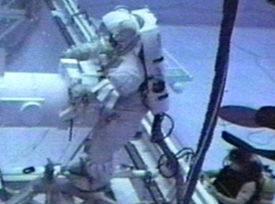Click on image for full size
NASA
A Game of Capture the Satellite
News story originally written on November 25, 1997
It was late in the evening when two astronauts approached the spinning 3,000 pound satellite. They delicately reached out to grab the lost satellite and bring it safely back to the U.S. space shuttle. This may sound like a clip out of a recent science fiction movie, but this is the story of the lost SPARTAN satellite.
The SPARTAN satellite was sent in the payload bay of the U.S. space shuttle, mission STS-87. It was to be released from the bay for two full days. During this time it was to make solar observations that would act as verification of the SOHO mission. The satellite failed to begin its maneuvers soon after it was deployed. Columbia tried to catch the failed satellite, only to nudge it into a slow spin while attempting to capture it with the robotic arm.
NASA decided to send astronauts Scott and Doi on a spacewalk to capture the satellite. Both men had underwater training in case an emergency retrieval of the satellite was necessary. However, the rehearsals never included a satellite that was spinning. The two men completed a successful retrieval of the satellite around 9p.m. last night.
A captured satellite is not the only excitement involved in this mission. Doi, age 43, became the first Japanese spacewalker last night during the rescue mission.
You might also be interested in:
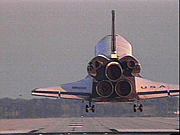
Columbia wrapped up its 16-day, six and a half million mile mission early this morning. Touchdown was at 6:20 a.m. CDT. The landing was an excellent one. On the mission, astronauts completed microgravity
...more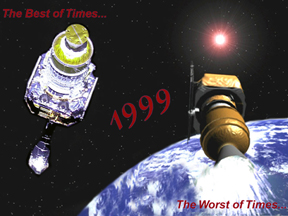
It was another exciting and frustrating year for the space science program. It seemed that every step forward led to one backwards. Either way, NASA led the way to a great century of discovery. Unfortunately,
...more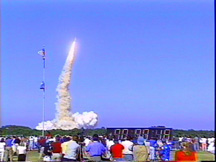
The Space Shuttle Discovery lifted off from Kennedy Space Center at 2:19 p.m. EST, October 29th. The sky was clear and the weather was great as Discovery took 8 1/2 minutes to reach orbit for the Unitied
...more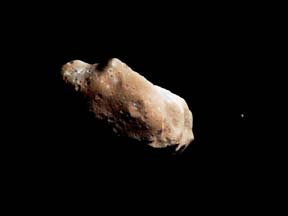
A moon was discovered orbiting the asteroid, Eugenia. This is only the second time in history that a satellite has been seen circling an asteroid. A special mirror allowed scientists to find the moon
...more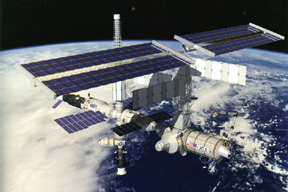
Will Russia ever put the service module for the International Space Station in space? NASA officials are demanding an answer from the Russian government. The necessary service module is currently waiting
...more
During a period of about two days in early May, 1998, the ACE spacecraft was immersed in plasma associated with a coronal mass ejection (CME). The SWICS instrument on ACE, which determines unambiguously
...more
J.S. Maini of the Canadian Forest Service has referred to forests as the "heart and lungs of the world." Forests reduce soil erosion, maintain water quality, contribute to atmospheric humidity and cloud
...more


